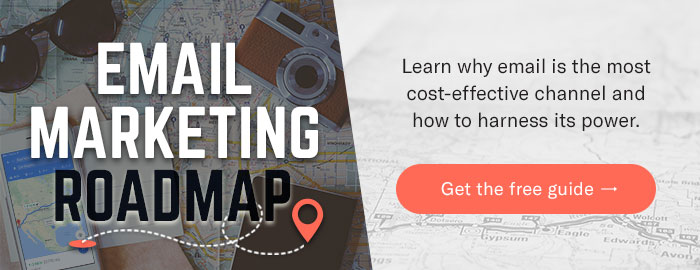If you’re a home improvement or general contractor, chances are you’re looking to lead gen companies for business this year. There are a lot of companies out there, and if you’re not familiar with how to get the most from them, they can easily become more trouble than they’re worth. So how do you make the best use these companies without getting burned in the process?
There are number of variables that come into play with these lead gen companies. Assuming that buying leads is the right strategy for your business (which is a different subject entirely), you need to make informed decisions at all buying stages to get the best return on your time and money.
With that in mind, I’ve put together a collection of tips for contractors using lead gen companies, covering the things you should know before and after signing up.
1. Understand the Process
Whether you’re familiar with contractor lead gen companies or not, it’s important to know that most operate on the same model. A homeowner visits the company’s website and forks over their personal information and info on their project. Then the lead gen company sells that lead to three to five different contractors who are competing for that one homeowner’s business.
Knowing this ahead of time will save you some confusion when you reach out to that lead. Now there are some services out there that might charge you a premium for exclusive leads, but what you need to remember is that the homeowner will still most likely get estimates from other contractors regardless of any “exclusive” deals. So you still might be competing with other contractors even after paying a premium.
2. Research Your Options and Find the Right Fit
There are a lot of lead gen companies out there that want your business. While they all offer relatively similar services, it’s in your best interest to investigate them and evaluate their effectiveness before buying. Some of the more popular options are companies like HomeAdvisor (formerly ServiceMagic), RedBeacon, Thumbtack and Houzz.
My advice to you is to explore these services on your own and seek out other contractors’ reviews on Google. And when you do start experimenting with these lead gen services, have an evaluation plan in place so you can determine how successful they are for you. Use other contractors’ online feedback on pricing and bidding to help you figure out if it’s working or not.
3. Read the Fine Print
Something that might not be fully disclosed up front are the terms and conditions of using certain services. Some lead gen companies have minimum monthly contracts, setup and cancellation fees, and even limits for how long you can pause your accounts. While these safeguards are in place to help them succeed from a business perspective, you’ve got to keep a lookout for your own interests as well. Find out this information before you sign up for any lead gen service.
4. Dedicate Resources to Lead Management
Since most lead gen companies are selling the same lead to multiple contractors, the most successful contractors are the ones who have a dedicated person in charge of calling that lead right away. As you likely already know, the first phone call is most likely just to kick the tires and to get an immediate price estimate.
What you need to keep in mind is that this can be very time consuming if you’re running your business and trying to keep up with your leads. Having a dedicated person in charge of talking to these leads is a smart way to stay ahead of the competition. You don’t want to be the fifth contractor to call on the same lead.
5. Don’t Discount Yourself to Death
Despite having the best intentions in mind, these lead gen companies deliver leads to you who are interested only in finding the lowest price possible. Now we all like to save a little money here and there, but keep in mind that the leads you get from these services are likely taking bids from multiple contractors.
If you find yourself in a bidding war, the best advice is to not chase the business. Don’t undervalue your work by offering bargain basement pricing. There are other, better sources of leads that will respect the quality of work you provide (and are willing to pay a fair price for it).
6. Make Sure You’re Findable
You need to have a strong, positive online presence. Think about this scenario: You just got off the phone with a potential customer, gave them a bid and are sitting there knowing that other contractors are doing the same. What’s the customer doing? They’re going to Google your name or your business name to find out anything they can about you to help them make their decision. This is where you need to have the upper hand.
Don’t make it hard for them to find you. In fact, go all in and give them your website or Yelp page while on the call. People appreciate openness and transparency, especially when investing in their personal property. But having your social media accounts set up isn’t enough. You need to be active online and show potential customers that you’re a friendly, relatable, understanding business owner. This speaks volumes about your credibility too, and having a solid reputation will help you avoid having to discount your services.
7. Figure Out Your Price
No one knows your budget better than you do, so figuring out the right price is something you’ll have to do on your own. But in talking with contractors who have used lead gen services and reading success (and failure) stories online, it looks like you’ll be paying anywhere from $15-$120 per lead. General consensus is that somewhere in the middle (close to the $60-$80 range) is typically going to land you a good lead.
Depending on the size of the project that you get from these leads, the hustle required to turn those leads into paying customers can definitely make lead gen services appealing. But be very cautious with your approach. I’ve seen that the conversion rate on these leads to be anywhere from five to ten percent. You could spend a fair amount of money and time to get anything in return, so be very conscientious of how much you’re investing in these leads.
8. Understand Bad Lead Refund Policies
One of the biggest problems you’ll face with lead gen programs is that even when you do get leads, there’s a high risk they’ll be outdated or just plain bad data. Even if you’re participating in their “exact match” lead programs or paying for exclusivity, you run the risk of ending up paying for bad data.
Lead gen companies’ refund programs vary widely, assuming they even have one. If they do exist, some will give you quite the runaround in order to get anything back. Others will eventually “refund” you for bad leads, but in the form of credit to use toward future leads. This is why it’s important to control your budget, know what the fine print is ahead of time and be persistent in your handling of the leads you do get.
9. Have a Long-Term Strategy
Probably the best thing that I can say about lead gen services is that the leads you do get are still contacts you can add to your database. And let’s face it, if they went with the lowest bid, there’s a chance they’ll be looking for touch-up work in the future.
So while the leads you get from these services might not generate anything for you right now, stay in touch. When you talk to them, give them a reason to trust the quality of work you do, let them know what you specialize in and add them to your email nurture program. You’d be surprised by how many of those leads could eventually turn into business for you down the road.
Wrap-Up
Lead gen companies are a decent way to try and get some quick business, but more often than not, the amount of time and money you have to dedicate to these systems isn’t worth it. While I’m of the opinion that your best business comes from past customer referrals, if you decide that lead gen companies are the right approach to growing your business, make sure you know what you’re getting into ahead of time.
Whatever methods you use to grow your business, make sure that you have a long-term strategy in mind. Quick customer wins are short-lived and run the risk of discounting you out of business. Focus on nurturing your current and past customers so that they recommend you to their friends and family.



![Better Email Etiquette Equals Better Marketing Results [16 Rules]](https://www.outboundengine.com/wp-content/uploads/shutterstock_411184843-1-400x250.jpg)

